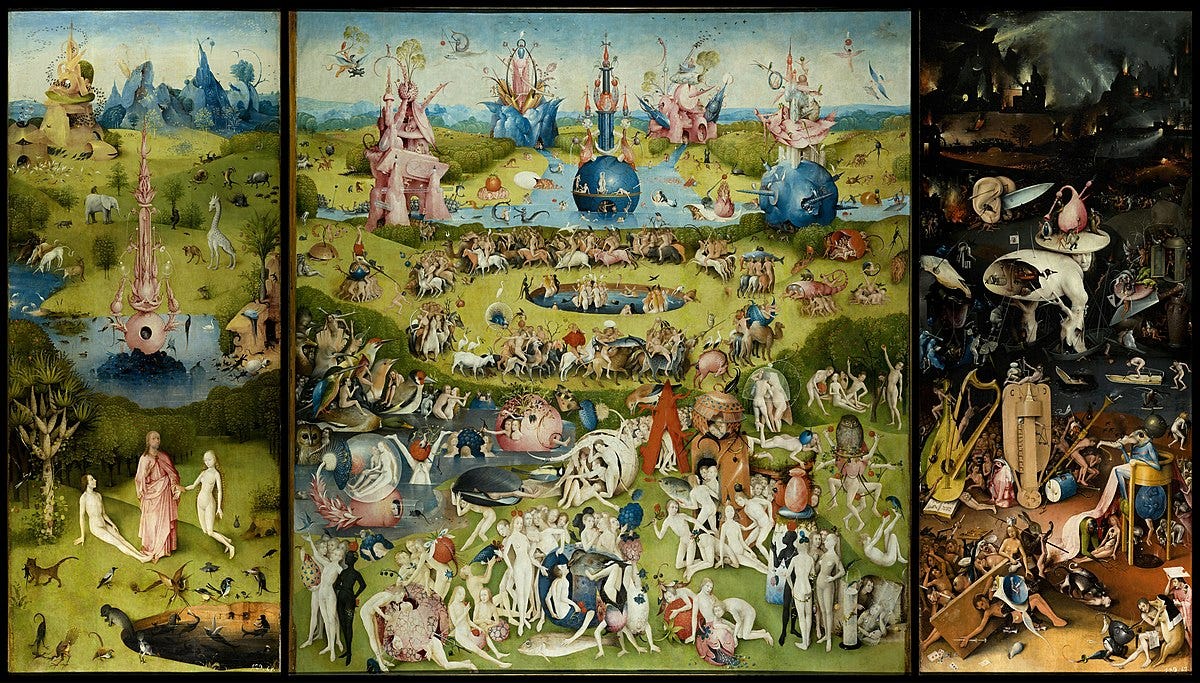I nearly died the first time I went to Denver. It had something to do with altitude sickness and the surprise of seeing snow in the middle of June. I don't remember most of that trip - except for looking down at my light jacket midway through hiking a 14,000-foot mountain and seeing snowflakes. I looked up toward the horizon in an attempt to spot the peak, but there was no horizon to look at - just snow, fog, and a kind of spatial hell that never seemed to end.
Recently, I returned to Denver with the hope that this time, I'd have enough oxygen in my brain to take in the city. But, I realized that some cities are better forgotten.
It would be too easy to call the urban landscape featureless and grey, but it also wouldn't be quite true. The city of Denver is lined with gigantic monoliths dedicated to professional sports. There are four stadiums located in such a way that any drive in or out of the city grid involves passing at least one of them. If this is not enough, the first announcement you hear at the Denver airport is the mayor telling you about the city's world-class professional teams and the ski towns that are at least an hour away.
A lot of people at the airport seem eager to escape Denver as soon as possible. They walk out of the terminal with unnaturally long bags containing skis and snow boots efficiently tied to the back of their bursting backpacks. They seem more spritely than the regular folk for whom the powdery white mountains that line the horizon are tomorrow's dream.
On my second day in the city, I walked into a Trader Joe's, and at the entrance, I saw someone conversing with a couple of panhandlers. He spoke loudly, as if he wanted passersby to hear him, "I just have to tell you - I don't have any money 'cause I just got fired from my job today." That conversation was still stuck in my head when I spotted a woman in the aisles wearing a hoodie that said, "You can never go wrong with puppies and booze." I was still contemplating that existential statement and lingering by the cash counter when I spotted a typical Denver heterosexual couple - early thirties, man in a Patagonia vest, both wearing Salomon shoes. They had a cart filled to the top and the man was talking with the cashier. He lowered his left arm and drew an invisible line straight down the middle of the cart and then put his right arm around the woman. I couldn't confirm what was happening until the cashier asked, "Do you want them in separate bags too?" and the man said, "No." He wanted to just split the payment down the middle.
On the drive back from Trader Joe's, I discovered another monolith—this one greyer and duller than the stadiums. The sign said "Meow Wolf" in bright colors that contrasted with the mood of the building. I quickly associated the name with "walk-through art experiences," ones that people post pictures of on their Instagram and Hinge dating profiles.
Putting all of this together, I realized Denver is not meant for living but to service the various escaped realities that the city has to offer - the ski towns, the professional sports, and the Instagrammable hang zones. The only incongruity to this city in service of escaped reality is the mountains on the horizon - jutting out from the corner of the football stadium or sometimes peeking through the space between two skyscrapers. The sight of these peaks, basking in the golden light of the afternoon sun, always catch you by surprise. I think this is what makes the city rather melancholic - the awareness in the horizon that such beauty exists almost touching distance away, but you are stuck in an urban landscape that offers so little.
In his critique of the millennium triptych by Hieronymus Bosch, John Berger notes that the defining trait of the third panel, which depicts hell, is that it does not have a horizon:
"There is no horizon there. There is no continuity between actions, there are no pauses, no paths, no pattern, no past and no future. There is only the clamor of the disparate, fragmentary present. Everywhere there are surprises and sensations, yet nowhere is there any outcome. Nothing flows through: everything interrupts. There is a kind of spatial delirium."
After visiting Denver, I disagree. There is some solace to be found in the lack of a horizon - at least you know that you're in hell. It is more bearable than the presence of a horizon that feels far away - distant enough to feel like the mountains, just like the city, is an image of an image of an image. Hell is truly the second panel of the triptych - the garden of earthly delights.




Maybe to out of towners and transplants, sure. Denver is a real place to the people who call it home. If you don’t like it, perhaps you should and look at the mirror at your own empty life instead of blaming a city. Wherever you go, there you are.
Yo this is incredible